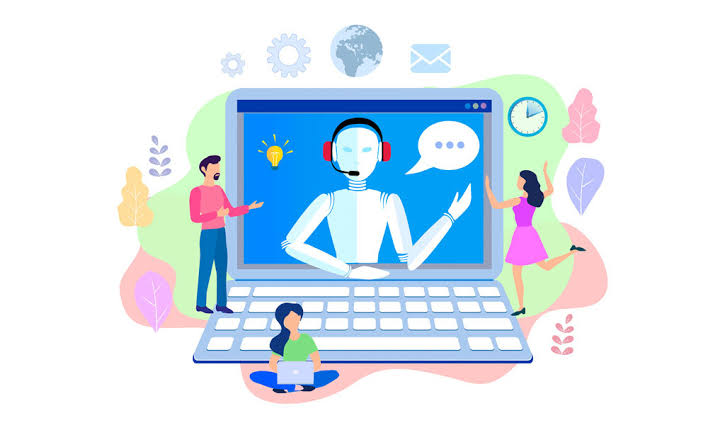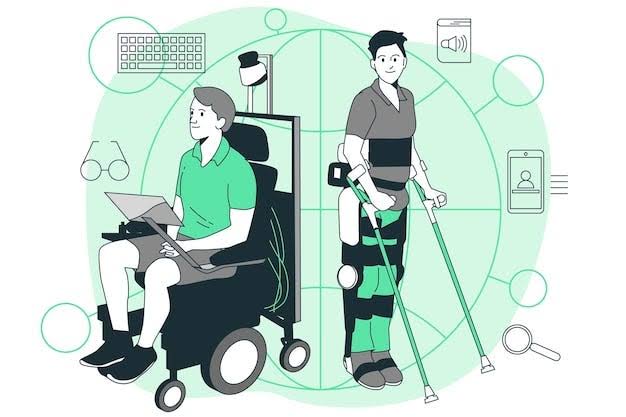Artificial intelligence has become one of the most transformative tools in customer service today. Businesses across the globe are turning to AI to improve communication, streamline operations, and provide personalized support. The role of AI in customer service is no longer just experimental but has evolved into a vital component of how companies engage with customers daily.
Enhancing Customer Support Availability
One of the major benefits of AI in customer service is its ability to provide round-the-clock support. Unlike human agents who work fixed hours, AI-powered chatbots and virtual assistants are available 24/7. Customers can ask questions, seek guidance, or resolve basic issues at any time of the day without waiting for office hours.
This continuous availability not only enhances customer satisfaction but also helps businesses operate more efficiently. Customers no longer feel frustrated due to long response times, making them more likely to remain loyal to a brand.
Reducing Response Times
Speed is one of the most important aspects of customer service, and AI plays a critical role in minimizing delays. Chatbots can instantly provide answers to frequently asked questions such as account details, order tracking, or refund policies. This immediate response reduces waiting time for customers while allowing human agents to focus on more complex issues.
Faster responses also help businesses build trust, as customers value brands that can solve their problems quickly and effectively. By automating routine interactions, AI ensures that customer service teams deliver consistent efficiency.
Personalizing Customer Interactions
Artificial intelligence has the ability to analyze vast amounts of customer data, including purchase history, preferences, and browsing patterns. This information allows businesses to personalize interactions, offering tailored recommendations and solutions.
For example, AI systems can suggest products based on previous purchases or provide personalized troubleshooting steps. This personal touch makes customers feel valued and understood, which strengthens relationships and improves brand loyalty.
Assisting Human Agents
Rather than replacing human employees, AI often works alongside them to improve performance. AI tools can assist customer service representatives by providing real-time suggestions, analyzing customer sentiment, or retrieving relevant information quickly.
This support reduces the stress on human agents while ensuring that customers receive accurate and helpful responses. AI-driven insights also help agents handle difficult situations more effectively, improving the overall quality of service.
Improving Accuracy and Consistency
Human agents may sometimes provide inconsistent answers due to stress, fatigue, or lack of information. AI eliminates these issues by offering standardized and accurate responses every time. Whether answering questions through chatbots or automated voice systems, customers receive reliable information.
This consistency builds trust in the company and ensures that customers know what to expect. It also reduces errors, making customer service more reliable and professional.
Lowering Operational Costs
AI-driven customer service solutions significantly reduce costs for businesses. By automating repetitive tasks, companies require fewer human agents to manage large volumes of customer inquiries. This allows organizations to allocate resources more efficiently without compromising on service quality.
Over time, reduced staffing requirements and improved efficiency translate into financial savings while still ensuring excellent customer support.
Supporting Multilingual Communication
Global businesses often face the challenge of serving customers who speak different languages. AI-powered tools can bridge this gap through real-time translation and multilingual support. Chatbots and AI assistants can communicate in various languages, helping businesses expand their reach and cater to international customers.
This makes customer service more inclusive, breaking down language barriers and enhancing customer experiences globally.
Predicting Customer Needs
AI goes beyond solving problems by predicting customer needs before they arise. Using predictive analytics, AI can identify patterns in customer behavior and anticipate issues. For example, it can notify a customer about potential delays in shipping or recommend upgrades before a service expires.
Proactive customer service makes customers feel cared for and valued, strengthening their trust in a brand. It also reduces potential frustrations, improving overall customer satisfaction.
Analyzing Feedback for Improvement
AI tools are capable of analyzing large amounts of customer feedback from surveys, reviews, and social media. By identifying trends and common complaints, businesses can make informed decisions about improving their services and products.
This continuous feedback loop allows companies to adapt quickly and remain competitive while showing customers that their opinions matter.
Future of AI in Customer Service
The future of AI in customer service looks promising as technology continues to evolve. With advancements in natural language processing, AI will become even more conversational and human-like in its interactions. Virtual assistants will handle increasingly complex tasks while still maintaining accuracy and empathy.
As businesses continue to adopt AI, the focus will shift toward blending human empathy with technological efficiency, creating a balanced customer service experience that is both personal and effective.




Interesting